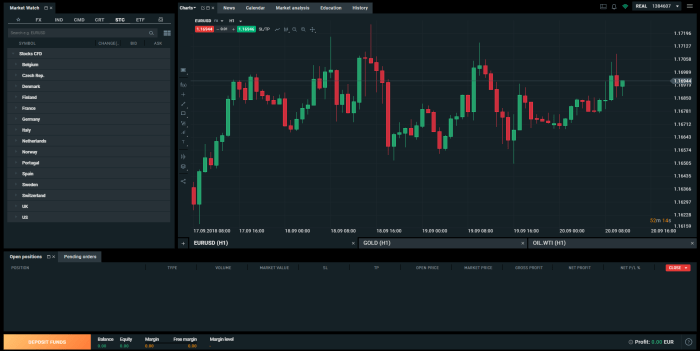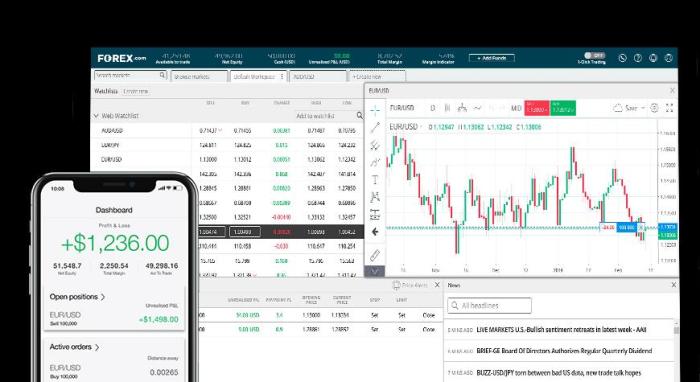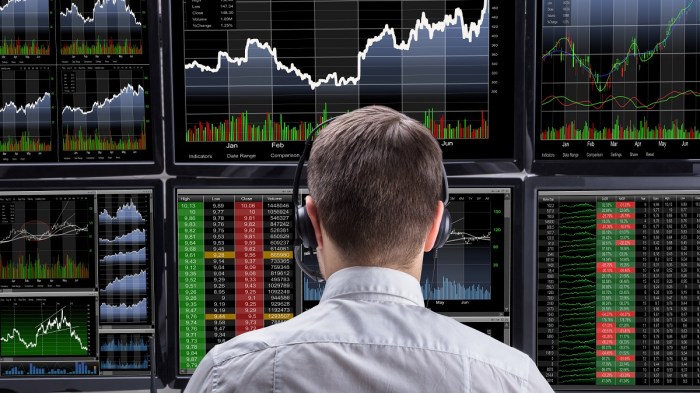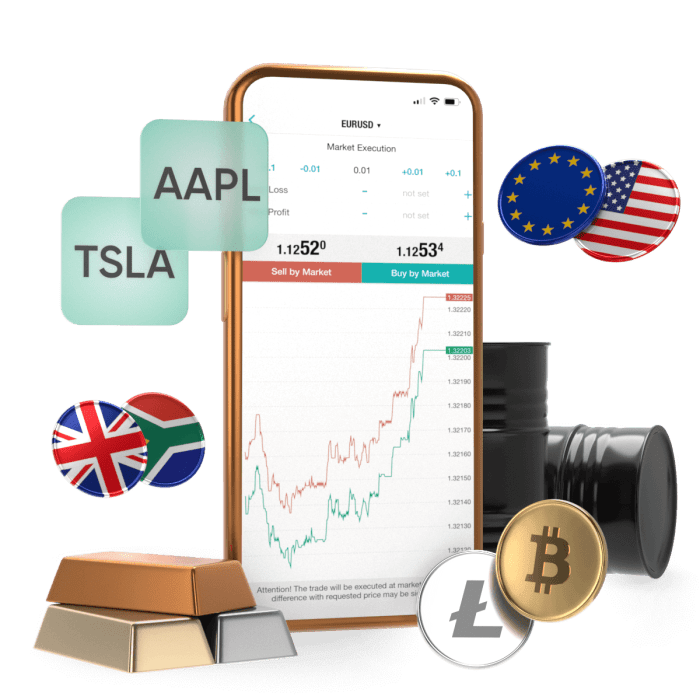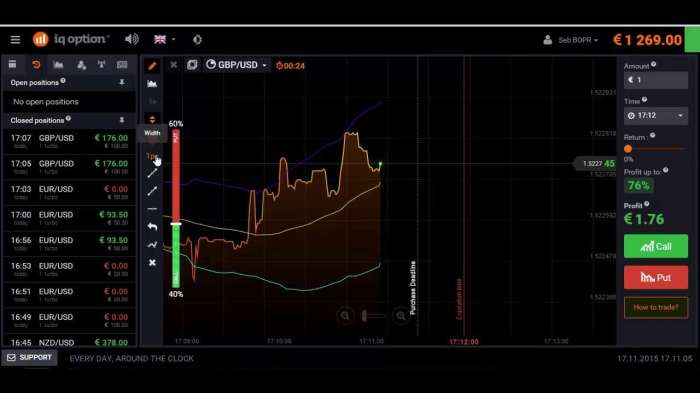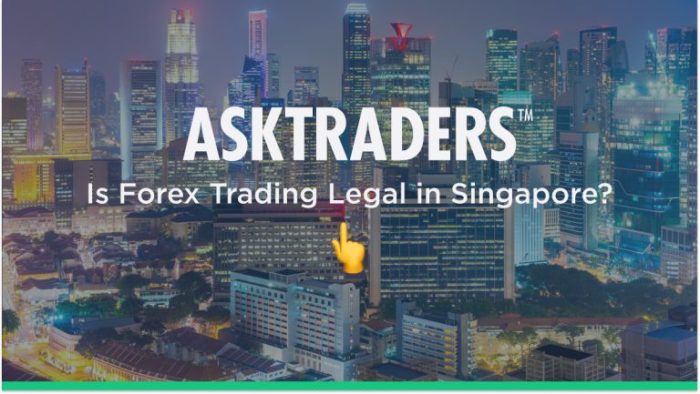
Forex trading SG – it’s a world of high-stakes thrills and potential fortunes, but navigating Singapore’s unique regulatory landscape requires savvy. Think of it as a high-octane game of global finance, where the Singapore dollar dances to the rhythm of international events. This isn’t just about buying and selling currencies; it’s about understanding the intricate dance of economic policies, geopolitical shifts, and the ever-changing market sentiment. Get ready to dive in!
This guide unpacks the essentials of forex trading in Singapore, from understanding MAS regulations and choosing the right broker to mastering risk management and leveraging technological tools. We’ll explore popular trading strategies, analyze the impact of geopolitical events on the SGD, and point you towards valuable educational resources. Whether you’re a seasoned trader or just starting your journey, this deep dive will equip you with the knowledge to navigate the exciting – and sometimes unpredictable – world of Singaporean forex trading.
Regulations and Licensing of Forex Trading in Singapore
Singapore, a global financial hub, boasts a robust and tightly regulated forex market. This stringent regulatory framework, primarily overseen by the Monetary Authority of Singapore (MAS), aims to protect investors and maintain the integrity of the financial system. Understanding these regulations is crucial for both traders and brokers operating within the country.
Monetary Authority of Singapore’s (MAS) Regulations, Forex trading sg
The MAS plays a pivotal role in overseeing the forex market in Singapore. Its regulations cover various aspects, from licensing and capital requirements for forex brokers to the conduct of trading activities and investor protection measures. These regulations are designed to ensure market fairness, transparency, and stability. Key areas of focus include preventing market manipulation, combating money laundering, and protecting consumers from fraudulent activities. The MAS regularly reviews and updates its regulations to adapt to the evolving landscape of the forex market. This proactive approach ensures that Singapore maintains its reputation as a reliable and trustworthy jurisdiction for forex trading.
Licensing Requirements for Forex Brokers
Forex brokers operating in Singapore must obtain a Capital Markets Services (CMS) license from the MAS. This license is not easily obtained and involves a rigorous application process. Applicants must demonstrate financial stability, robust risk management systems, and a commitment to complying with all relevant MAS regulations. The MAS scrutinizes the applicant’s business plan, management team, and operational infrastructure to ensure they meet the required standards. The licensing process includes background checks on key personnel and a thorough assessment of the broker’s anti-money laundering (AML) and know-your-customer (KYC) procedures. Failure to meet these stringent requirements can result in the application being rejected. Licensed brokers are subject to ongoing supervision and regular audits by the MAS to ensure continued compliance.
Comparison with Other Forex Trading Hubs
Compared to other major forex trading hubs like London or New York, Singapore’s regulatory environment is generally considered more stringent. While other jurisdictions may have regulations, Singapore’s emphasis on robust licensing requirements, strict compliance monitoring, and strong investor protection measures sets it apart. This rigorous approach contributes to Singapore’s reputation as a safe and reliable jurisdiction for forex trading, attracting both institutional and retail investors. However, the level of regulation also means higher barriers to entry for brokers, resulting in a smaller but potentially more stable and trustworthy market.
Consequences of Operating Without Proper Licensing
Operating a forex brokerage without the necessary CMS license from the MAS carries severe consequences. These can include hefty fines, legal action, and reputational damage. The MAS actively enforces its regulations and takes a firm stance against unlicensed operators. Furthermore, operating without a license can expose the business to significant legal risks and make it difficult to secure banking services and other essential business relationships. The consequences can extend beyond the business itself, potentially affecting individuals involved in the operation. It’s imperative for any entity considering operating a forex brokerage in Singapore to fully understand and comply with the MAS’s licensing requirements.
Popular Forex Trading Strategies in Singapore
Singapore, a global financial hub, attracts a diverse range of forex traders employing various strategies. The choice of strategy often depends on individual risk tolerance, time commitment, and market understanding. While no single strategy guarantees success, understanding their nuances is crucial for navigating the complexities of the forex market.
Scalping in the Singaporean Forex Market
Scalping involves rapidly entering and exiting trades to profit from small price fluctuations. Singaporean traders might use this strategy during periods of high liquidity, such as the overlap between Asian and European trading sessions. The advantages include the potential for quick profits and the ability to react swiftly to market changes. However, scalping requires intense focus, low latency trading platforms, and a high tolerance for risk due to the frequent trades and potential for accumulating small losses. Successful scalping often relies on technical analysis and precise order execution.
Day Trading in Singapore
Day traders hold positions for a single trading day, aiming to capitalize on intraday price movements. In Singapore, this strategy might leverage the active trading hours that coincide with the region’s economic activity and global market influences. Advantages include potentially higher returns compared to longer-term strategies and the ability to cut losses quickly. However, day trading demands significant time commitment, a strong understanding of technical analysis, and the ability to manage emotional responses to market volatility.
Swing Trading in the Singaporean Market
Swing trading involves holding positions for several days or weeks, aiming to profit from larger price swings. Singaporean traders might use this strategy to capitalize on longer-term trends influenced by economic data releases, geopolitical events, or shifts in market sentiment. The advantages include less time commitment than day trading and the potential for higher returns than scalping. However, swing trading carries a higher risk of prolonged losses if market movements go against the trader’s predictions and requires a robust risk management plan.
Comparison of Forex Trading Strategies in Singapore
| Strategy | Time Horizon | Risk Profile | Potential Return |
|---|---|---|---|
| Scalping | Minutes to hours | High | Low to moderate |
| Day Trading | One trading day | Medium to High | Moderate to High |
| Swing Trading | Days to weeks | Medium | Moderate to High |
Influence of Macroeconomic Factors on Singaporean Forex Trading Strategies
Singapore’s economic health significantly influences forex trading strategies. Factors like the Singapore dollar’s exchange rate, interest rate decisions by the Monetary Authority of Singapore (MAS), and the performance of key sectors (such as tourism and manufacturing) all play a role. For example, a strong Singapore dollar might make exporting more challenging, potentially affecting trading strategies for companies involved in international trade. Conversely, positive economic data could strengthen the Singapore dollar, creating opportunities for traders employing specific strategies to capitalize on these movements. Government policies and announcements also influence market sentiment and can lead to significant price fluctuations, necessitating adaptable trading strategies.
Risk Management in Singaporean Forex Trading: Forex Trading Sg

Forex trading, while potentially lucrative, carries significant risk. In Singapore, a well-structured risk management plan is crucial for survival in this volatile market. Ignoring risk can quickly lead to substantial losses, wiping out your trading capital. This section Artikels key strategies and pitfalls to avoid for successful forex trading in the Lion City.
Designing a Comprehensive Risk Management Plan
A robust risk management plan for Singaporean forex traders needs to consider the unique characteristics of the local market, including its regulatory environment (MAS oversight) and its exposure to global economic events impacting the Singapore dollar (SGD). This plan should be a personalized document, tailored to your trading style, risk tolerance, and financial situation. Key components include defining your trading goals, setting realistic profit targets, determining acceptable loss levels, and establishing a strict adherence to pre-defined rules. Regular reviews and adjustments are also vital to adapt to changing market conditions. For instance, a trader focusing on Asian currency pairs might need to adjust their strategy during periods of heightened geopolitical tension in the region.
Common Pitfalls in Risk Management
Many Singaporean forex traders fall into common traps that significantly increase their risk exposure. Overtrading, driven by greed or fear of missing out (FOMO), is a significant issue. This often leads to poor decision-making and impulsive trades, disregarding the pre-defined risk parameters. Another prevalent pitfall is neglecting proper position sizing, leading to excessive leverage and disproportionate losses relative to the trader’s capital. Ignoring stop-loss orders, or placing them too far away from the entry price, exposes the trader to unlimited losses. Finally, a lack of emotional discipline, allowing emotions to override rational trading strategies, can lead to significant losses. For example, a trader holding onto a losing position hoping for a reversal, rather than cutting their losses, is a classic example of emotional trading.
Importance of Position Sizing and Stop-Loss Orders
Position sizing and stop-loss orders are fundamental to mitigating risk. Position sizing dictates the amount of capital allocated to each trade. A general rule of thumb is to never risk more than 1-2% of your trading capital on any single trade. This limits potential losses and prevents a single bad trade from decimating your account. For example, with a $10,000 account and a 1% risk tolerance, the maximum loss per trade should be $100. Stop-loss orders automatically exit a trade when the price reaches a predetermined level, limiting potential losses. These orders are crucial for protecting your capital and preventing emotional decision-making during market volatility. The placement of stop-loss orders should be strategic, considering factors such as support and resistance levels, volatility, and potential news events.
Risk Management Techniques and Their Applications
Several risk management techniques can be applied in the Singaporean forex market. Diversification, spreading investments across multiple currency pairs or asset classes, reduces the impact of losses in any single position. Hedging, using offsetting positions to reduce risk, can protect against adverse price movements. For instance, a trader anticipating a decline in the SGD/USD might buy a put option to hedge against potential losses. Backtesting, rigorously testing trading strategies on historical data, helps to identify potential weaknesses and refine risk management parameters. Finally, maintaining a detailed trading journal, recording all trades, profits, losses, and rationales, aids in identifying recurring mistakes and improving future performance. For example, tracking consistent losses on specific currency pairs might highlight a need for further research or a shift in trading strategy.
Choosing a Forex Broker in Singapore
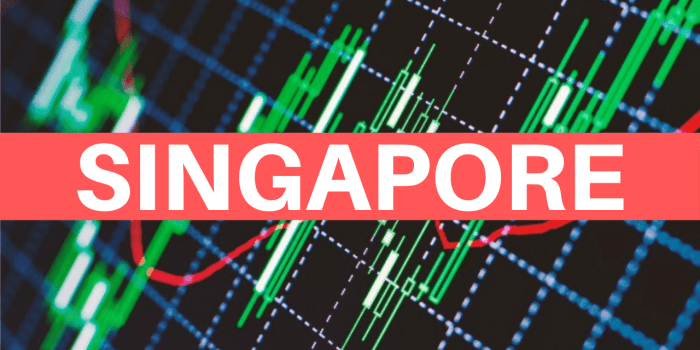
Navigating the world of forex trading in Singapore requires careful consideration of your broker. The right broker can significantly impact your trading experience, from the tools available to the level of security offered. Choosing poorly can lead to frustrating limitations and, worse, potential financial risks. This section will guide you through the key aspects of selecting a reputable forex broker in Singapore.
Choosing a forex broker involves more than just finding the one with the lowest fees. A thorough assessment is crucial to ensure your trading journey is secure, efficient, and profitable. This includes understanding the broker’s regulatory standing, the services they provide, and their client protection measures.
Features and Services Offered by Forex Brokers in Singapore
Singaporean forex brokers offer a range of features and services, each designed to cater to different trader needs and experience levels. Some brokers excel in providing advanced charting tools and technical analysis features, while others prioritize educational resources and customer support. Key differentiators often include account types (standard, mini, micro), trading platforms (MetaTrader 4, MetaTrader 5, proprietary platforms), leverage options, available currency pairs, and the availability of research tools and educational materials. For instance, some brokers might offer access to expert market analysis and webinars, while others might focus on providing a streamlined, user-friendly platform for beginners. The ideal choice depends entirely on your individual trading style and goals.
Factors to Consider When Selecting a Reputable Forex Broker in Singapore
Selecting a trustworthy forex broker requires careful consideration of several factors. These factors extend beyond just the fees and commissions charged. A comprehensive evaluation should include assessing the broker’s regulatory compliance, the security of your funds, the quality of their customer support, and the overall user experience. Consider factors like the broker’s reputation, the availability of educational resources, the speed and reliability of their execution, and the transparency of their fee structure. A robust risk management framework offered by the broker is also essential.
Evaluating a Forex Broker’s Regulatory Compliance and Client Protection Measures
Regulatory compliance is paramount when choosing a forex broker in Singapore. Ensure the broker is licensed and regulated by the Monetary Authority of Singapore (MAS). The MAS sets stringent standards for forex brokers operating within Singapore, including capital adequacy requirements and client segregation of funds. Verify the broker’s license details on the MAS website to confirm their legitimacy. Furthermore, investigate the broker’s client protection measures, such as negative balance protection, which safeguards traders from incurring debts exceeding their account balance. Understanding these measures provides a crucial layer of security for your investments.
Essential Questions to Ask Potential Forex Brokers Before Opening an Account
Before committing to a forex broker, prepare a list of crucial questions. Inquire about the broker’s regulatory status, the types of accounts offered, the trading platforms available, the commission structure and fees, the leverage offered, the available currency pairs, the quality of customer support, and their client protection measures. Additionally, ask about the broker’s educational resources, their trading conditions, and their account opening process. Thorough questioning empowers you to make an informed decision, ensuring a secure and beneficial trading partnership.
The Impact of Geopolitical Events on the Singapore Dollar (SGD)
Singapore, a small but mighty island nation, boasts a highly developed economy deeply intertwined with global affairs. Its currency, the Singapore dollar (SGD), therefore, acts as a sensitive barometer reflecting the shifts in the international landscape. Geopolitical events, from trade wars to political upheavals, significantly influence the SGD’s value in the forex market, impacting businesses, investors, and everyday Singaporeans alike.
The SGD’s value is largely determined by supply and demand, influenced by various factors, but geopolitical events often introduce substantial volatility. These events can create uncertainty, leading to capital flows in or out of Singapore, directly affecting the exchange rate. Understanding these impacts is crucial for navigating the complexities of the forex market.
Major Global Events and Their Impact on the SGD
Global events significantly impact the SGD’s exchange rate. For instance, escalating trade tensions between major economies can lead to decreased global trade and investment, impacting Singapore’s export-oriented economy. This can weaken the SGD as investors seek safer havens. Conversely, positive global developments, such as a resolution to a major geopolitical conflict, can boost investor confidence and strengthen the SGD.
Historical Examples of Geopolitical Impacts on the SGD
The 2008 global financial crisis serves as a prime example. The crisis triggered a significant decline in global trade and investment, causing a sharp depreciation of the SGD against major currencies like the USD. Similarly, the ongoing US-China trade war introduced uncertainty into the global economy, leading to fluctuations in the SGD’s value as investors reassessed their positions. The COVID-19 pandemic also created significant volatility, with the SGD initially weakening before recovering as Singapore’s effective pandemic management restored confidence.
Singapore’s Economic Policies and Trade Relationships
Singapore’s economic policies play a crucial role in mitigating the impact of geopolitical events. The Monetary Authority of Singapore (MAS), the country’s central bank, uses a managed float exchange rate system, intervening in the forex market to manage volatility and maintain stability. Singapore’s robust trade relationships with various countries also act as a buffer, diversifying its economic reliance and reducing its vulnerability to shocks from specific regions. The country’s strong emphasis on free trade agreements further enhances its resilience.
The SGD’s Relationship with Other Major Currencies
The SGD’s performance is closely tied to the USD, EUR, and JPY. The USD is often considered a safe-haven currency, and its strength or weakness can significantly influence the SGD. A strong USD typically puts downward pressure on the SGD, while a weak USD can boost the SGD’s value. Similarly, the EUR and JPY, reflecting the economic performance of the Eurozone and Japan respectively, also affect the SGD’s exchange rate through their influence on global trade and investment flows. A strong EUR or JPY can lead to increased competition for Singaporean exports, potentially impacting the SGD.
Educational Resources for Forex Trading in Singapore
Navigating the world of forex trading in Singapore requires a solid foundation of knowledge and skills. Aspiring traders need access to reliable and comprehensive educational resources to understand the intricacies of the market and develop successful trading strategies. Fortunately, numerous avenues exist for Singaporean traders seeking to enhance their expertise.
Reputable Sources for Forex Education
Several reputable sources offer forex trading education in Singapore. These include established financial institutions, online learning platforms, and experienced traders who provide mentorship or courses. Choosing the right resource depends on your learning style, budget, and learning goals. For example, a beginner might benefit from a structured online course, while an experienced trader may prefer advanced workshops or one-on-one mentorship.
Key Concepts and Skills for Aspiring Forex Traders
Mastering forex trading requires a multifaceted approach. Aspiring traders should focus on acquiring a strong understanding of several core concepts and developing crucial skills.
- Fundamental Analysis: Understanding macroeconomic indicators (GDP, inflation, interest rates), geopolitical events, and their impact on currency pairs is crucial.
- Technical Analysis: Learning to interpret charts, identify trends, and use technical indicators (moving averages, RSI, MACD) is essential for timing trades.
- Risk Management: Implementing effective risk management strategies, such as setting stop-loss orders and position sizing, is paramount to protect capital.
- Trading Psychology: Developing discipline, emotional control, and avoiding impulsive decisions are vital for long-term success.
- Broker Selection: Understanding the differences between forex brokers, evaluating their reliability, and choosing a suitable platform is crucial.
These skills are not learned overnight; they require dedicated study and practice.
Importance of Continuous Learning and Professional Development
The forex market is dynamic and constantly evolving. Geopolitical events, economic shifts, and technological advancements continuously reshape trading landscapes. Therefore, continuous learning is not merely beneficial; it’s essential for long-term success in forex trading. Staying updated on market trends, refining trading strategies, and adapting to new technologies are critical components of a successful trader’s journey. Regularly attending workshops, seminars, or online courses, and engaging with experienced traders, significantly contributes to ongoing professional development. This ensures traders remain competitive and adapt to the ever-changing dynamics of the forex market.
Technological Tools Used in Singaporean Forex Trading
The Singaporean forex market, known for its efficiency and liquidity, relies heavily on advanced technology. Traders leverage a range of sophisticated tools to analyze markets, execute trades, and manage risk, contributing significantly to their overall success. The integration of technology is not just a convenience; it’s a necessity for competitive trading in today’s fast-paced environment.
Trading Platforms and Charting Software
Trading platforms act as the central hub for forex traders, providing access to real-time market data, charting tools, order execution capabilities, and account management features. Popular platforms like MetaTrader 4 (MT4) and MetaTrader 5 (MT5) offer extensive customization options, allowing traders to tailor their trading experience to their specific needs. Charting software, often integrated within these platforms, provides visual representations of price movements, enabling traders to identify trends, patterns, and potential trading opportunities. These platforms offer various chart types (candlestick, bar, line), technical indicators (moving averages, RSI, MACD), and drawing tools (Fibonacci retracements, trend lines), facilitating in-depth market analysis. The ability to backtest trading strategies within these platforms is also a significant advantage, allowing traders to refine their approaches before risking real capital.
Automated Trading Systems (Expert Advisors)
Automated trading systems, often referred to as Expert Advisors (EAs), are pre-programmed algorithms designed to execute trades automatically based on predefined rules and parameters. EAs can be particularly beneficial for traders who lack the time to constantly monitor the market or prefer a more disciplined, rules-based approach. However, it’s crucial to understand that while EAs can automate the execution process, they do not eliminate risk. The success of an EA heavily relies on the quality of its programming and the accuracy of its underlying trading strategy. A poorly designed EA can lead to significant losses. Furthermore, market conditions can change rapidly, rendering even the most sophisticated EA ineffective if not properly monitored and adjusted. A successful EA requires rigorous testing and ongoing optimization. For instance, an EA designed for a trending market might fail spectacularly in a range-bound market.
Tools Enhancing Market Analysis and Risk Management
Beyond trading platforms and EAs, numerous technological tools enhance market analysis and risk management. Economic calendars provide information on upcoming economic events that can impact currency prices, allowing traders to anticipate potential volatility. News aggregators and sentiment analysis tools offer insights into market sentiment and news events, helping traders make informed decisions. Risk management tools, such as position sizing calculators and stop-loss order management systems, assist in controlling potential losses. Sophisticated backtesting platforms allow for thorough evaluation of trading strategies across historical data, providing a more objective assessment of their potential profitability and risk profile. For example, a trader might use a backtesting platform to evaluate the performance of a specific trading strategy during periods of high volatility versus periods of low volatility.
Reliable Internet Connectivity and Data Security
In the fast-paced world of forex trading, reliable internet connectivity is paramount. Even brief disruptions can lead to missed opportunities or, worse, failed trades. High-speed, low-latency internet access is crucial for ensuring seamless execution of trades and access to real-time market data. Similarly, data security is of utmost importance. Traders need to ensure that their trading platforms and accounts are protected against unauthorized access and cyber threats. Choosing a reputable broker with robust security measures is crucial in mitigating these risks. The use of strong passwords, two-factor authentication, and secure internet connections are essential for protecting sensitive trading information. A breach of data security could lead to significant financial losses.
Epilogue
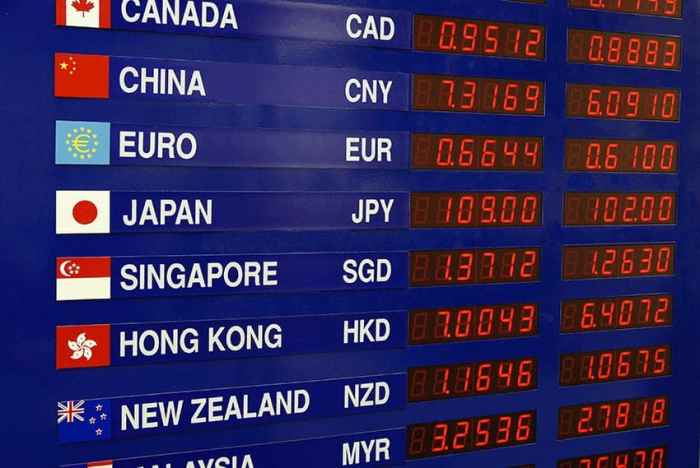
Forex trading in Singapore offers incredible opportunities, but it’s crucial to approach it with a well-defined strategy and a robust risk management plan. Remember, success in this arena hinges on understanding the regulatory environment, mastering effective trading strategies, and continuously learning. By carefully selecting a reputable broker, staying informed about geopolitical events, and leveraging available technological tools, you can significantly improve your chances of success. So, are you ready to take the plunge?
Check what professionals state about forex trading bitcoins and its benefits for the industry.
Learn about more about the process of trading forex vs futures in the field.
